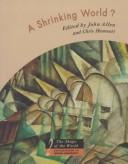| Listing 1 - 10 of 24 | << page >> |
Sort by
|

ISBN: 007001115X 9780070011151 Year: 1978 Volume: vol *15 vol *5 Publisher: New York McGraw-Hill
Abstract | Keywords | Export | Availability | Bookmark
 Loading...
Loading...Choose an application
- Reference Manager
- EndNote
- RefWorks (Direct export to RefWorks)
Programming --- LISP (list processor language) --- LISP (Computer program language) --- LISP (Langage de programmation) --- 681.3*D32 --- 681.3*I25 --- List processing computer language --- List processing (Electronic computers) --- language classifications: applicative languages; data-flow languages; design languages; extensible languages; macro and assembly languages; nonprocedural languages; specialized application and very high-level languages (Programminglanguages) --- Programming languages and software: expert system tools and techniques (Artificial intelligence)--See also {681.3*D32} --- LISP (Computer program language). --- 681.3*I25 Programming languages and software: expert system tools and techniques (Artificial intelligence)--See also {681.3*D32} --- 681.3*D32 language classifications: applicative languages; data-flow languages; design languages; extensible languages; macro and assembly languages; nonprocedural languages; specialized application and very high-level languages (Programminglanguages) --- Lisp [Langage de programmation]. --- Lisp [Programmatietaal].

ISBN: 0631207287 0631207295 9780631207290 Year: 2003 Publisher: Malden Blackwell
Abstract | Keywords | Export | Availability | Bookmark
 Loading...
Loading...Choose an application
- Reference Manager
- EndNote
- RefWorks (Direct export to RefWorks)
Human geography. --- Power (Social sciences) --- Géographie humaine --- Pouvoir (Sciences sociales) --- Human geography --- #SBIB:327.1H10 --- 316.4.052 --- 316.32 --- Empowerment (Social sciences) --- Political power --- Exchange theory (Sociology) --- Political science --- Social sciences --- Sociology --- Consensus (Social sciences) --- Anthropo-geography --- Anthropogeography --- Geographical distribution of humans --- Social geography --- Anthropology --- Geography --- Human ecology --- Internationale betrekkingen: theorieën --- Integrerende processen. Sociale controle. Sociale sancties --- Globale samenlevingsvormen --- Geografie --- Sociale geografie --- Maatschappij. --- Power (Social sciences). --- 316.32 Globale samenlevingsvormen --- 316.4.052 Integrerende processen. Sociale controle. Sociale sancties --- Géographie humaine

ISBN: 0198741863 0198741871 Year: 1995 Publisher: Oxford Oxford University Press
Abstract | Keywords | Export | Availability | Bookmark
 Loading...
Loading...Choose an application
- Reference Manager
- EndNote
- RefWorks (Direct export to RefWorks)
Communication, International. --- Economic geography. --- Human geography. --- International organization. --- Human geography --- Geografie --- Sociale geografie --- Algemene Werken. --- National wealth --- Social geography
Book
ISBN: 9780674035348 0674035348 0674053494 9780674053496 9780674064058 0674064054 Year: 2012 Publisher: Cambridge, Mass. The Belknap Press of Harvard University Press
Abstract | Keywords | Export | Availability | Bookmark
 Loading...
Loading...Choose an application
- Reference Manager
- EndNote
- RefWorks (Direct export to RefWorks)
Though we have other distinguishing characteristics (walking on two legs, for instance, and relative hairlessness), the brain and the behavior it produces are what truly set us apart from the other apes and primates. And how this three-pound organ composed of water, fat, and protein turned a mammal species into the dominant animal on earth today is the story the author seeks to tell in this book. Adopting what he calls a bottom-up approach to the evolution of human behavior, the author considers the brain as a biological organ; a collection of genes, cells, and tissues that grows, eats, and ages, and is subject to the direct effects of natural selection and the phylogenetic constraints of its ancestry. An exploration of the evolution of this critical organ based on recent work in paleoanthropology, brain anatomy and neuroimaging, molecular genetics, life history theory, and related fields, this book shows us the brain as a product of the contexts in which it evolved : phylogenetic, somatic, genetic, ecological, demographic, and ultimately, cultural-linguistic. Throughout, the author focuses on the foundations of brain evolution rather than the evolution of behavior or cognition.
Brain --- Human evolution. --- Evolution. --- Growth. --- Evolution (Biology) --- Physical anthropology --- Evolutionary psychology --- Human beings --- Origin --- Affective and dynamic functions --- Evolution. Phylogeny --- Physiology of nerves and sense organs
Book
ISBN: 0045510148 004551013X 9780045510146 Year: 1970 Volume: 1 no. 1 Publisher: London : George Allen & Unwin,
Abstract | Keywords | Export | Availability | Bookmark
 Loading...
Loading...Choose an application
- Reference Manager
- EndNote
- RefWorks (Direct export to RefWorks)
Sédimentation (Géologie) --- 551.3.051 --- Sedimentation. Stratification --- 551.3.051 Sedimentation. Stratification --- Sédimentation (Géologie) --- Sedimentation and deposition. --- Sedimentation and deposition --- SEDIMENTOLOGIE DEPOTS CONTINENTAUX --- SEDIMENTOLOGIE --- STRUCTURES SEDIMENTAIRES --- DEPOTS MILIEUX MIXTES --- DEPOTS MARINS

ISBN: 1560233966 1315801639 1317766121 131776613X 9781317766124 9781315801636 9781317766117 9781317766131 9781560233954 9781560233961 Year: 2014 Publisher: Hoboken Taylor and Francis
Abstract | Keywords | Export | Availability | Bookmark
 Loading...
Loading...Choose an application
- Reference Manager
- EndNote
- RefWorks (Direct export to RefWorks)
Experience the birth of the first support group for sexual minorities with developmental disabilities! Reflecting an unprecedented development in the disabled and sexual minority communities, Gay, Lesbian, Bisexual, and Transgender People with Developmental Disabilities and Mental Retardation: Stories of the Rainbow Support Group describes the founding, achievements, and history of a unique group providing support for people with developmental disabilities or mental retardation (DD/MR) who are gay, lesbian, bisexual, and transgender. In this pathbreaking book, group founder John D. Al
People with mental disabilities --- Developmentally disabled --- Gays with disabilities --- Lesbians --- Bisexuals --- Transgender people --- Gender identity --- Self-help groups --- Sexual behavior --- Groups, Mutual help support --- Groups, Mutual support --- Groups, Self-help --- Groups, Support --- Mutual help support groups --- Mutual support groups --- Networks, Self-help --- Support groups --- Disabled, Developmentally --- Intellectually disabled persons --- Mental disabilities, People with --- Mentally deficient persons --- Mentally disabled persons --- Mentally disordered persons --- Mentally handicapped --- Mentally retarded persons --- People with intellectual disabilities --- Retarded persons --- Group counseling --- Gays --- People with disabilities --- Developmental disabilities --- Intellectual disability --- Mentally ill --- Persons --- Gay people with disabilities --- Bisexual people

ISBN: 0813018935 9780813018935 0813006309 Year: 1979 Publisher: Gainesville University of Florida Press
Abstract | Keywords | Export | Availability | Bookmark
 Loading...
Loading...Choose an application
- Reference Manager
- EndNote
- RefWorks (Direct export to RefWorks)
Narration (Rhetoric) --- Rhetoric --- Language and languages --- Speaking --- Authorship --- Expression --- Literary style --- Narrative (Rhetoric) --- Narrative writing --- Discourse analysis, Narrative --- Narratees (Rhetoric) --- Cervantes Saavedra, Miguel de, --- Cervantes y Saavedra, Miguel de --- Cerbantes Saavedra, Miguel de, --- Cervantes de Saavedra, Miguel de, --- Cervantes, M., --- Cervantes, Michael a, --- Cervantes, Miguel de, --- Cervantes Saavedra, Michael a, --- Cervantes Saavedra, Michiel de, --- Cervantes Savedra, Miguel, --- De Cervantes, Miguel, --- De Cervantes, Miguel --- Cervantes, Michel --- Hsi-wan-ti-shih, --- Saavedra, Miguel de Cervantes, --- Sai-wan-tʻi-ssŭ, --- Savedra, Migelʹ Servantes, --- Savedra, Miguel Cervantes, --- Servantes, M., --- Servantes Saavedra, Migelʹ de, --- Servantes Saavedra, Miguėlʹ, --- Serṿantes Saṿaidrah, Miguʼel de, --- Servantes Savedra, Migelʹ, --- Servantesu, M., --- Sirfāntīs, --- Tservantes, Michaēl, --- Сервантес Сааведра, Мигель де, --- סערװאנטעס סאאװעדרא, מיגעל דע --- סערוואנטעס דע סאאוועדרא, מיגעל דע --- סרונתס סאוידרה, מיגואל די --- סרונטס סאאוידרא, מיגואל די, --- סרונטס סודרה, מיגל דה, --- סרונטס, מיגאל --- צערװאנטעס, מיגועל, --- ثربانتس سابدرا، ميجيل دي، --- سروانتس --- セルバンテス, --- 塞万提斯, --- Technique.
Book
ISBN: 0674055721 0674069870 9780674069879 9780674064737 0674064739 9780674055728 Year: 2012 Publisher: Cambridge, MA
Abstract | Keywords | Export | Availability | Bookmark
 Loading...
Loading...Choose an application
- Reference Manager
- EndNote
- RefWorks (Direct export to RefWorks)
In this gustatory tour of human history, John S. Allen demonstrates that the everyday activity of eating offers deep insights into human beings' biological and cultural heritage. We humans eat a wide array of plants and animals, but unlike other omnivores we eat with our minds as much as our stomachs. This thoughtful relationship with food is part of what makes us a unique species, and makes culinary cultures diverse. Not even our closest primate relatives think about food in the way Homo sapiens does. We are superomnivores whose palates reflect the natural history of our species. Drawing on the work of food historians and chefs, anthropologists and neuroscientists, Allen starts out with the diets of our earliest ancestors, explores cooking's role in our evolving brain, and moves on to the preoccupations of contemporary foodies. The Omnivorous Mind delivers insights into food aversions and cravings, our compulsive need to label foods as good or bad, dietary deviation from "healthy" food pyramids, and cross-cultural attitudes toward eating (with the French, bien sûr, exemplifying the pursuit of gastronomic pleasure).To explain, for example, the worldwide popularity of crispy foods, Allen considers first the food habits of our insect-eating relatives. He also suggests that the sound of crunch may stave off dietary boredom by adding variety to sensory experience. Or perhaps fried foods, which we think of as bad for us, interject a frisson of illicit pleasure. When it comes to eating, Allen shows, there's no one way to account for taste.
Brain --- Cognition. --- Diet --- Food habits --- Food --- Human evolution. --- Nutrition --- Omnivores. --- Omnivorous animals --- Animals --- Appetite --- Food preferences --- Evolution (Biology) --- Physical anthropology --- Evolutionary psychology --- Human beings --- Health --- Psychology --- Evolution. --- Psychological aspects. --- Origin
Book
ISBN: 1280697512 9786613674470 080938566X 9780809385669 9780809329687 0809329689 9781280697517 6613674478 Year: 2010 Publisher: Carbondale Southern Illinois University Press
Abstract | Keywords | Export | Availability | Bookmark
 Loading...
Loading...Choose an application
- Reference Manager
- EndNote
- RefWorks (Direct export to RefWorks)
Illinois --- History. --- Local history. --- Historiography, Local --- History, Local --- Local historiography --- Local history --- Historiography
Book
ISBN: 395487265X 9783954872657 9788484898665 8484898660 9783954874057 3954874059 Year: 2015 Publisher: Madrid ; Frankfurt am Main : TC/12 : Iberoamericana : Vervuert,
Abstract | Keywords | Export | Availability | Bookmark
 Loading...
Loading...Choose an application
- Reference Manager
- EndNote
- RefWorks (Direct export to RefWorks)
Narra los avatares de uno de los espacios clave de la historia del teatro comercial español, el Cervantes de Alcalá de Henares, cuyos primeros cimientos se remontan a las últimas décadas del siglo XVI y que, tras su restauración en la década de 1990, aún sigue en funcionamiento.
Theaters --- Teatros --- Opera-houses --- Playhouses (Theaters) --- Theatres --- Arts facilities --- Auditoriums --- Centers for the performing arts --- Music-halls --- Teatro Cervantes (Alcalá de Henares, Spain) --- Teatro Cervantes (Alcalá de Henares, España) --- Teatro Pequeño (Alcalá de Henares, Spain) --- Cine Cervantes (Alcalá de Henares, Spain) --- Antiguo Teatro Cervantes (Alcalá de Henares, Spain) --- Corral de Comedias (Alcalá de Henares, Spain) --- Theater --- History. --- Dramatics --- Histrionics --- Professional theater --- Stage --- Theatre --- Performing arts --- Acting --- Actors
| Listing 1 - 10 of 24 | << page >> |
Sort by
|

 Search
Search Feedback
Feedback About UniCat
About UniCat  Help
Help News
News